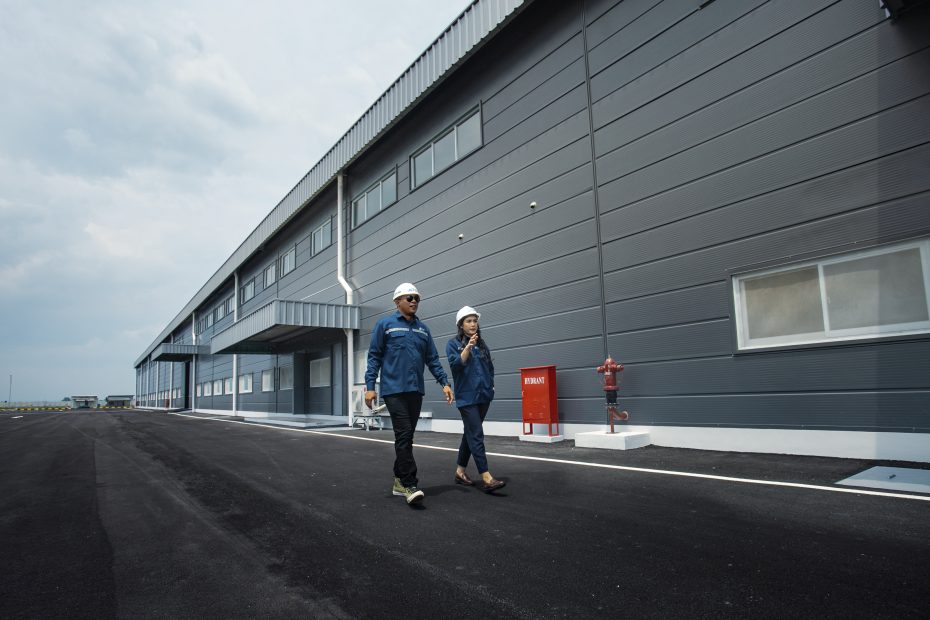Choosing the Right Factory Contractor is one of the most crucial steps in designing and building a successful industrial facility. This process requires research, accuracy, and a clear understanding of your project’s specific needs. Many projects fail not because of a lack of funding, but due to choosing the wrong contractor. Therefore, it is essential to select the right factory contractor to ensure your industrial project runs efficiently, stays within budget, and meets high-quality standards.
In this article, we will cover various important aspects of choosing a factory contractor, including legality, experience, and work quality. This guide is also suitable for anyone seeking a deeper understanding of industrial contracting services in Indonesia.
Why Choosing a Factory Contractor Matters
A factory is not just an ordinary building. It is an industrial facility that involves complex systems such as mechanical, electrical, safety, and operational efficiency. A factory contractor must possess in-depth knowledge of industry standards, government regulations, and technical skills to construct a durable and efficient structure.
Unlike residential or commercial buildings, industrial facilities require customized designs that support production activities, ensure worker safety, and comply with strict environmental standards. This makes the contractor’s role more specialized and complex.
A contractor with relevant industrial experience knows how to integrate systems such as ventilation, waste management, heavy machinery support, and fire safety protocols — all crucial for smooth operations.
Choosing the right contractor brings many benefits to your project, such as:
- Cost and time efficiency
Professional contractors create realistic timelines and allocate resources efficiently, avoiding unnecessary delays and expenses.
- Regulatory compliance
Industrial buildings must comply with safety, environmental, and zoning laws. An experienced contractor ensures that your facility meets all legal requirements. - High-quality results
A well-constructed factory minimizes the risk of breakdowns, structural damage, or work accidents. A trusted contractor guarantees long-term durability and safety.
1.Initial Step: Define Your Project Needs
Before searching for a contractor, you need to clearly define the specific requirements of your project, including:
- Type of factory (food, textile, metal, automotive, etc.)
- Project scale (renovation or new construction)
- Project budget
- Completion timeline
- Project location
- Technical and operational specifications
This data will help you draft a Work Plan and Requirements Document (RKS), which forms the basis for contractor proposals.
2. Gather References and Create a List of Potential Factory Contractors
Once your needs are clear, the next step is to compile a list of suitable factory contractors. Information sources you can use include:
- Recommendations from business partners or industry associations
- Construction and industrial exhibitions
- Contractor websites and their portfolios
- Construction service marketplaces
- Business directories and professional forums
Make sure to verify the legality and track record of each contractor.
3. Verify the Contractor’s Legal Status and Certifications
Before discussing pricing, ensure that the contractor has the required licenses and supporting certifications, such as:
- Construction Services Business License (SIUJK)
- Business Identification Number (NIB)
- ISO certifications (if any)
- Business Entity Certificate (SBU) from LPJK
- Local construction permits
These documents prove the contractor’s compliance with legal and ethical standards.
4. Review Portfolios and Past Project Experience
Examine the projects they have previously handled, especially those similar to yours. Pay attention to:
- Project duration
- Project value
- Challenges faced
- Solutions provided
- Final documentation
Experienced factory contractors will have well-documented portfolios, client testimonials, and real-world case studies.
5. Compare Pricing and Budget Breakdown
Request a detailed Cost Budget Plan (RAB) from each shortlisted contractor.Therefore, compare not only the total price, but also consider the following aspects:
- Material specifications
- Labor costs
- Heavy equipment costs
- Project duration
- Payment terms
- Exclusions (what’s not included)
Avoid being tempted by the lowest price—make sure the price is realistic and doesn’t compromise on quality.
6. Assess Work Methods and Project Planning
Professional factory contractors should have structured and clear working methods. These typically include:
- Time schedule
- Work execution methods
- Project organizational structure
- Risk analysis and mitigation plans
Understanding their work methodology helps you assess how organized and proactive they are.
7. Evaluate the Technical Team and Experts
Ensure the contractor has a competent and certified technical team. Key positions include:
- Project Manager
- Site Engineer
- Quality Control Engineer
- HSE (Health, Safety, Environment) Officer
- Surveyor
Request the core team list and their previous project experiences.
8. Ensure the Contractor Offers Work Warranty
A warranty or maintenance period shows the contractor’s commitment to their work. The contract should specify:
- Warranty duration (usually 6–12 months)
- Warranty coverage (structural damage, leaks, etc.)
- Warranty claim mechanism
This helps you avoid unexpected costs in the future.
9. Check the Health and Safety Management System (HSE)
Workplace safety is a critical aspect of industrial projects. Ask about their HSE system:
- Do they have an HSE SOP?
- Are all workers insured?
- Is there a dedicated HSE officer on site?
- Do they use complete Personal Protective Equipment (PPE)?
A responsible factory contractor will always prioritize safety.
10. Conduct Interviews and Site Visits
Before making a final decision, conduct a direct interview with the contractor. Ask questions like:
- How did they overcome challenges in previous projects?
- Are they willing to adjust the design if needed?
- Do they have a fixed network of subcontractors?
If possible, visit an ongoing project to observe the quality and site management directly.
11. Draft a Clear and Legally Binding Contract
Once you’ve chosen your factory contractor, the final step is to create a detailed, legal contract. It should include:
- Project scope and work descriptions
- Project duration and schedule
- Payment scheme
- Variation order conditions
- Late penalty (liquidated damages)
- Work warranty
- Dispute resolution (arbitration or court)
Don’t hesitate to seek legal advice to ensure the contract complies with current laws.
Conclusion
Choosing the Right Factory Contractor is a major decision that affects the entire course of your industrial project. Make sure to choose a contractor who is fully licensed, proven by experience, backed by a professional team, and operates with a structured work system. Don’t just focus on the price—consider their quality and commitment. Moreover, you’ll feel more confident when signing contracts and monitoring the project’s progress from start to finish.
Ready to start your industrial project? Trust PT Trimulia Bangun Pesada, a reliable factory contractor in Indonesia.We bring decades of experience handling industrial projects of all scales, from small facilities to large-scale manufacturing plants.


